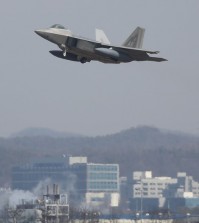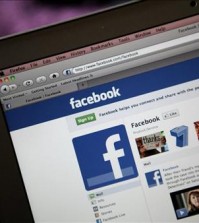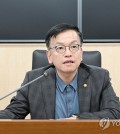- California Assembly OKs highest minimum wage in nation
- S. Korea unveils first graphic cigarette warnings
- US joins with South Korea, Japan in bid to deter North Korea
- LPGA golfer Chun In-gee finally back in action
- S. Korea won’t be top seed in final World Cup qualification round
- US men’s soccer misses 2nd straight Olympics
- US back on track in qualifying with 4-0 win over Guatemala
- High-intensity workout injuries spawn cottage industry
- CDC expands range of Zika mosquitoes into parts of Northeast
- Who knew? ‘The Walking Dead’ is helping families connect
Korea emerges as global data hub
MS plans to start building data center this year
By Choi Kyong-ae
Driven by its advanced infrastructure, Korea is increasingly becoming an attractive destination for leading global technology companies keen on expanding their data centers, according to people familiar with the trend Friday.
With help from KT Corp, Korea’s biggest fixed-line operator, Japanese telecom giant SoftBank established an internet data center in Namhae, a city located in the southern tip of the Korean peninsula, in 2012, KT said. SoftBank could not be reached for comment.
Facebook, the world’s most popular social network, is also said to be considering building a data center in Korea. This was made known when its Vice President Tom Furlong in-charge of data center operations, met Korean technology officials in December.
Microsoft (MS) is also seriously considering the possibility of building an internet data center (IDC) in Korea as part of its efforts to offer cloud computing services or backup data facility for the Asia-Pacific region, government officials and industry executives told The Korea Times.
“Microsoft briefed 14 Korean builders on the data center plan at a meeting held in downtown Seoul, Tuesday. The following day, they went to Microsoft’s Seoul office to make a presentation on their earnings and business operations,” an executive at GS Engineering & Construction said by telephone.
The attendants included major construction companies such as Hyundai Engineering & Construction, Daewoo Engineering & Construction, Samsung C&T and Daelim Industrial, according to the executive asking not to be named.
Microsoft said it plans to start the construction of the center in Korea by the end of this year, without confirming the size of its planned investment for the data facility as it has yet to select the IDC site, said the executive.
The U.S. tech giant is giving serious consideration to Busan, located some 393 kilometers south of Seoul, as its most preferred site for the center, he said.
The company advertized an opening on its web page until Feb. 13 seeking to recruit a qualified applicant who could work as a “data center development project manager in Busan, the Republic of Korea.” But the posting was gone the following day.
“As demand grows for our online and cloud services, Microsoft anticipates growth in its cloud infrastructure and we are continuously exploring new potential datacenter locations across the world as part of our regular business operations,” Microsoft said in an emailed statement, Friday.
Cloud computing, often referred to as simply “the cloud,” is the delivery of on-demand computing resources ― everything from applications to data centers ― over the internet on a pay-for-use basis, according to IBM Cloud.
But Microsoft didn’t offer specific details, saying, “We have nothing to announce today (Friday) regarding new facilities.”
To build a data center, it requires the space equivalent to scores of football fields, a Microsoft spokesman said without giving details. A football field is about 110 meters long and 49 meters wide.
The Microsoft project will be a “boon” to the domestic construction industry still reeling from the 2008 financial crisis, according to an executive with Daelim Industrial. Local reports estimate that the three-year project will be worth up to 14 trillion won ($13.2 billion).
Microsoft currently runs more than 12 IDCs across the world in countries including the U.S., Singapore and Hong Kong. The company said countries such as China, Australia and Switzerland will have “more automated” IDCs in the coming years.
Government officials and industry sources said that Microsoft has good reasons to consider Korea for its data center.
“Korea is very competitive to house a data center given low electricity charges, lack of deadly earthquakes compared to Japan, skilled maintenance workforce and unrivaled information-technology infrastructure,” said the Ministry of Science, ICT and Future Planning.
Korea charged the lowest electricity bills among six major members of the Organization for Economic Cooperation and Development at the end of 2012, said Korea Electric Power Corp., Korea’s state-run utility.
Electricity was sold at a low of 9.26 cents per kilowatt per hour compared to five others ― the U.S., Great Britain, France, Germany, Italy and Japan. Japan’s was at the highest of 21.66 cents per kWh among the six.















